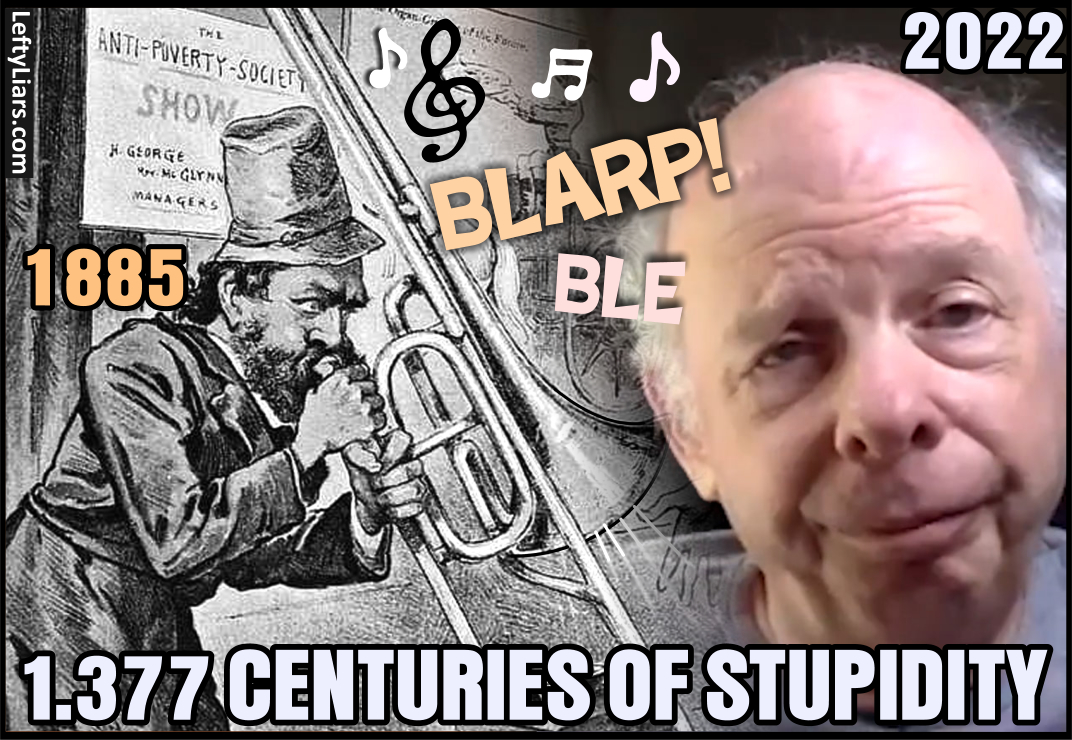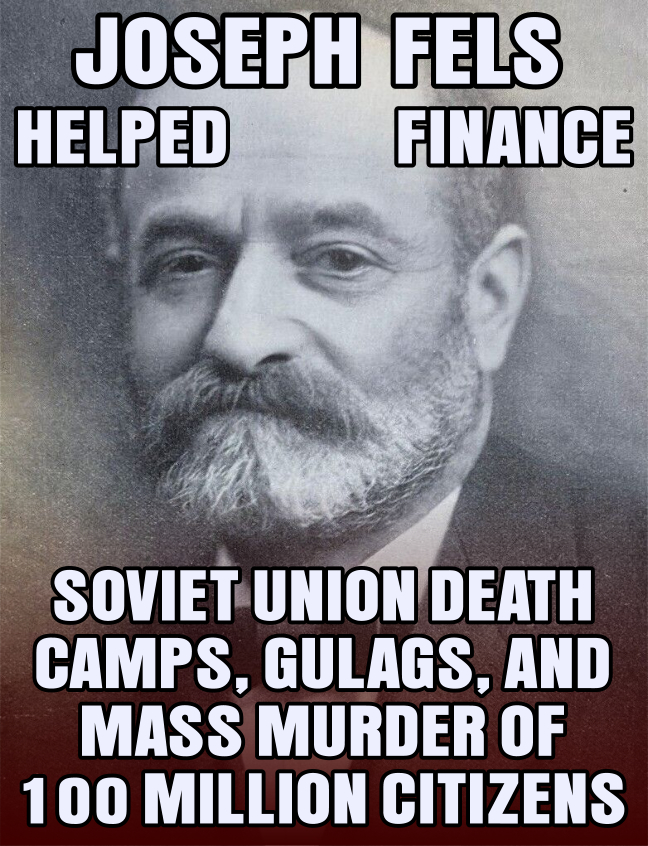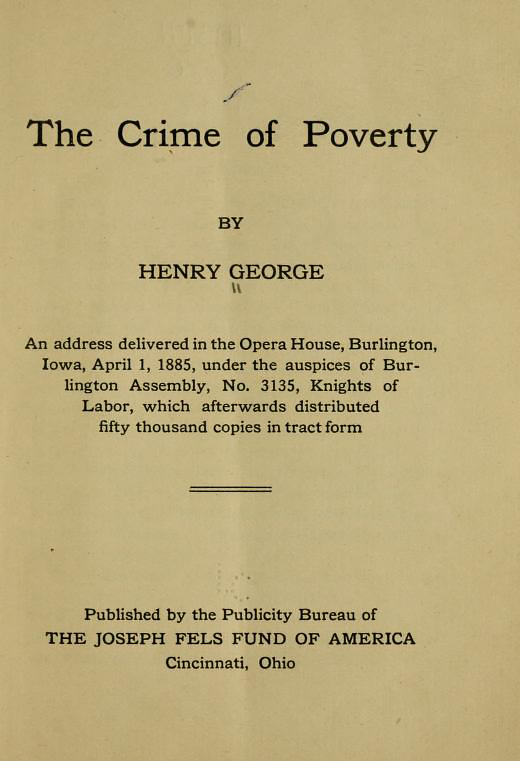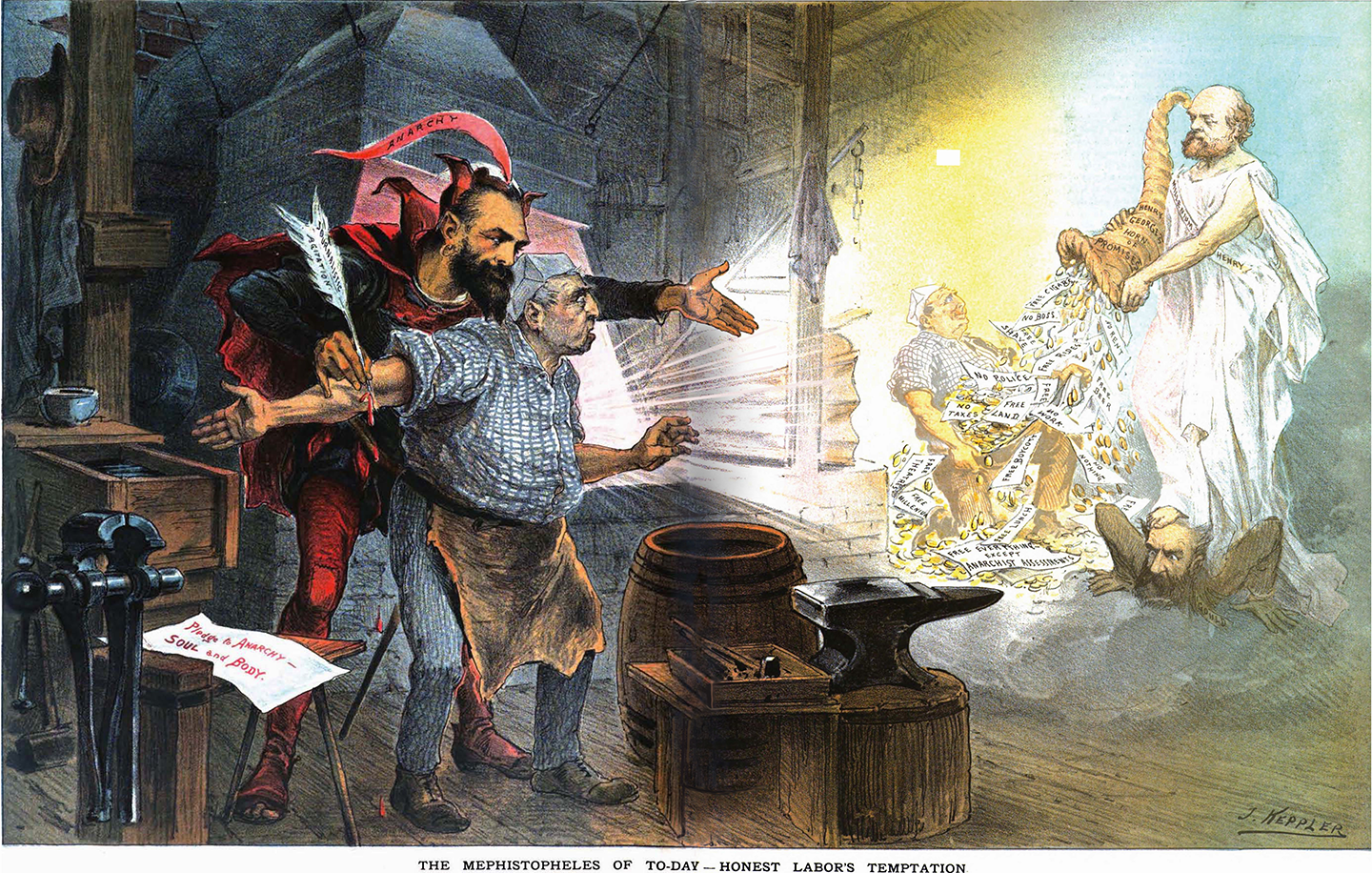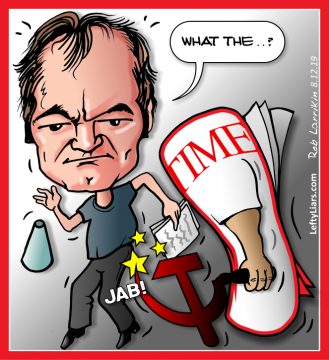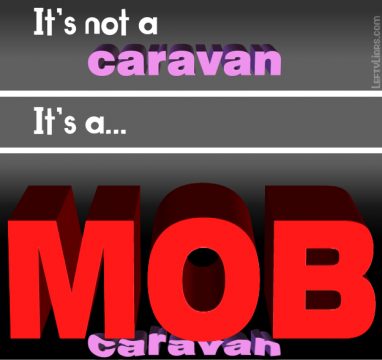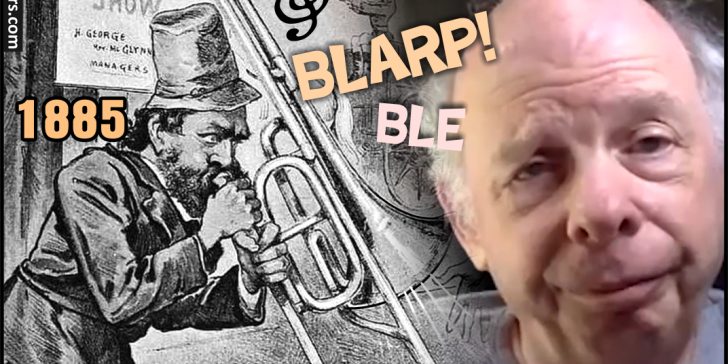
When we sell a property, we reveal its worth at settlement through the principle of supply and demand, which determines the property’s value based on a buyer’s willingness to pay. However, Henry George, one of America’s earliest socialists, wanted the State to calculate property value and then govern what percentage of that value it would charge in tax.
This was Henry George’s “Single Tax” theory, and opponents rallied against it as it was a recipe for disaster. Governments couldn’t value a property accurately if it came with a crystal ball and a price tag attached. The only way you can find something’s true monetary value is via the free market.
Under such a system, property owners would stop improving or developing their land to avoid higher taxes, resulting in shoddy and subpar cities and suburbs full of miserable shacks. Owners would raise rent and prices to compensate, boosting inflation. In time the so-called Single Tax would grow to be applied to other possessions such as cars, livestock, or tools. And you can bet governments would use this system to arbitrarily raise revenue or target political opponents.
Henry George died long ago, in the mid-19th Century. Why would modern Americans like the actor Wallace Shawn be praising him on TikTok and YouTube? How could his failed ideas regenerate, like bacteria in a Petri Dish? To answer that, we should look firstly at how socialism itself multiplies and then a little at George in the mid-19th Century.
When Henry George’s theory reached England in 1879, a cartoon compared it to the wolf (Socialism) ready to eat Red Riding-Hood (wages). Click the detail below to see the whole cartoon.
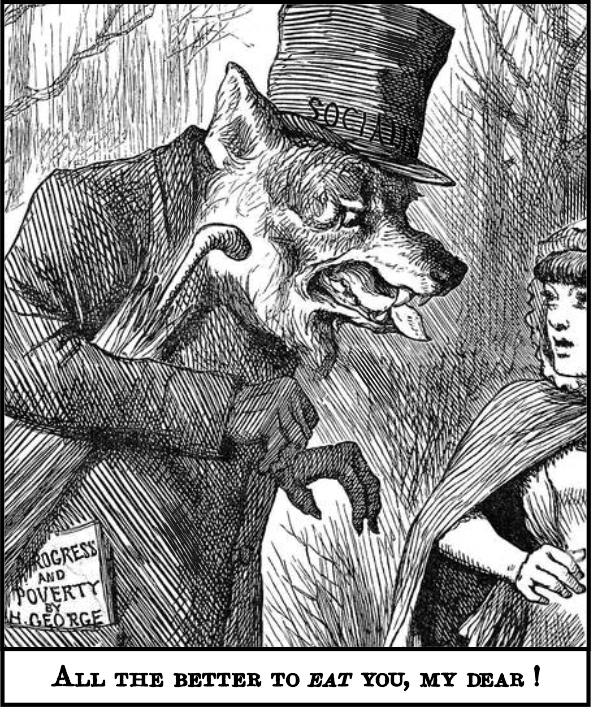
Socialism’s Doppelgängers
Socialism has numerous doppelgängers, a fact that Lefties like to hide. These creepy clones include National Socialism (Nazism), Fascism, Communism, and Henry George’s Georgism, all of which promise state-controlled “equal” sharing. Economics and political science eggheads (Homer Simpsons with BAs) squabble over which clone represents “true” socialism. None of these fake academics have ever run a business or developed a product or service, yet they believe they can effectively manage and drive a country’s economy.
Meanwhile, socialism mutates into many variants, like bacteria or viruses. Because utopian ideas of sharing are attractive and seem harmless, like a pied piper, they lead hundreds of millions of people to their deaths and create horrid living conditions for survivors. Like cancer, socialism spreads quickly, mutates into different types, and, if left untreated, it will destroy lives and ultimately kill. To those who deny its many strains, here are 99, just for starters:
| 1. Marxism | 34. eco-socialism | 67. anarcho-socialism |
| 2. Communism | 35. social ecology | 68. Islamic socialism |
| 3. Leninism | 36. participatory economics | 69. Jewish socialism |
| 4. Trotskyism | 37. market socialism | 70. Buddhist socialism |
| 5. Stalinism | 38. guild socialism | 71. Hindu socialism |
| 6. Maoism | 39. mutualist anarchism | 72. Taoist socialism |
| 7. National Socialism | 40. individualist anarchism | 73. Black socialism |
| 8. Social Democracy | 41. collectivist anarchism | 74. Afro-socialism |
| 9. Revolutionary Socialism | 42. communalism | 75. Third World socialism |
| 10. Marxist socialism | 43. libertarian municipalism | 76. democratic socialism |
| 11. Reformist Socialism | 44. democratic confederalism | 77. International socialism |
| 12. Radical Socialism | 45. De Leonism | 78. Democratic centralism |
| 13. Authoritarian Socialism | 46. minarchism | 79. Populist socialism |
| 14. Totalitarian Socialism | 47. autarchism | 80. Nonviolent socialism |
| 15. State Socialism | 48. humanist socialism | 81. Revolutionary pacifism |
| 16. Command Economy | 49. communitarianism | 82. Scientific socialism |
| 17. Hoxhaism | 50. Democratic Soc. 21st C | 83. Revolutionary democracy |
| 18. Castroism | 51. distributism | 84. Libertarian socialism |
| 19. Juche | 52. ecosocialism | 85. Social democratism |
| 20. Fabian Socialism | 53. Georgism | 86. Social market economy |
| 21. Socialist Feminism | 54. inclusive democracy | 87. Social corporatism |
| 22. Marxist Feminism | 55. land value taxation | 88. Christian socialism |
| 23. Neo-communism | 56. mutualism (economic theory) | 89. Democratic Market Socialism |
| 24. gradualism | 57. neo-Marxism | 90. Eco-anarchism |
| 25. syndicalism | 58. public ownership | 91. Participatory-socialism |
| 26. social anarchism | 59. social credit | 92. Neosocialism |
| 27. anarcho-syndicalism | 60. social ownership | 93. Social liberalism |
| 28. council communism | 61. solidarism | 94. Populist nationalism |
| 29. libertarian Marxism | 62. utopian socialism | 95. National-anarchism |
| 30. left communism | 63. worker cooperative | 96. Neo-Leninism |
| 31. autonomist Marxism | 64. revolutionary syndical | 97. Trotskyism |
| 32. social liberalism | 65. autonomism | 98. Neo-Trotskyism |
| 33. green socialism | 66. social anarchism | 99. Neo-Marxism |
Download this list in a numbered tree structure here, and see hundreds more entries in Wikipedia.
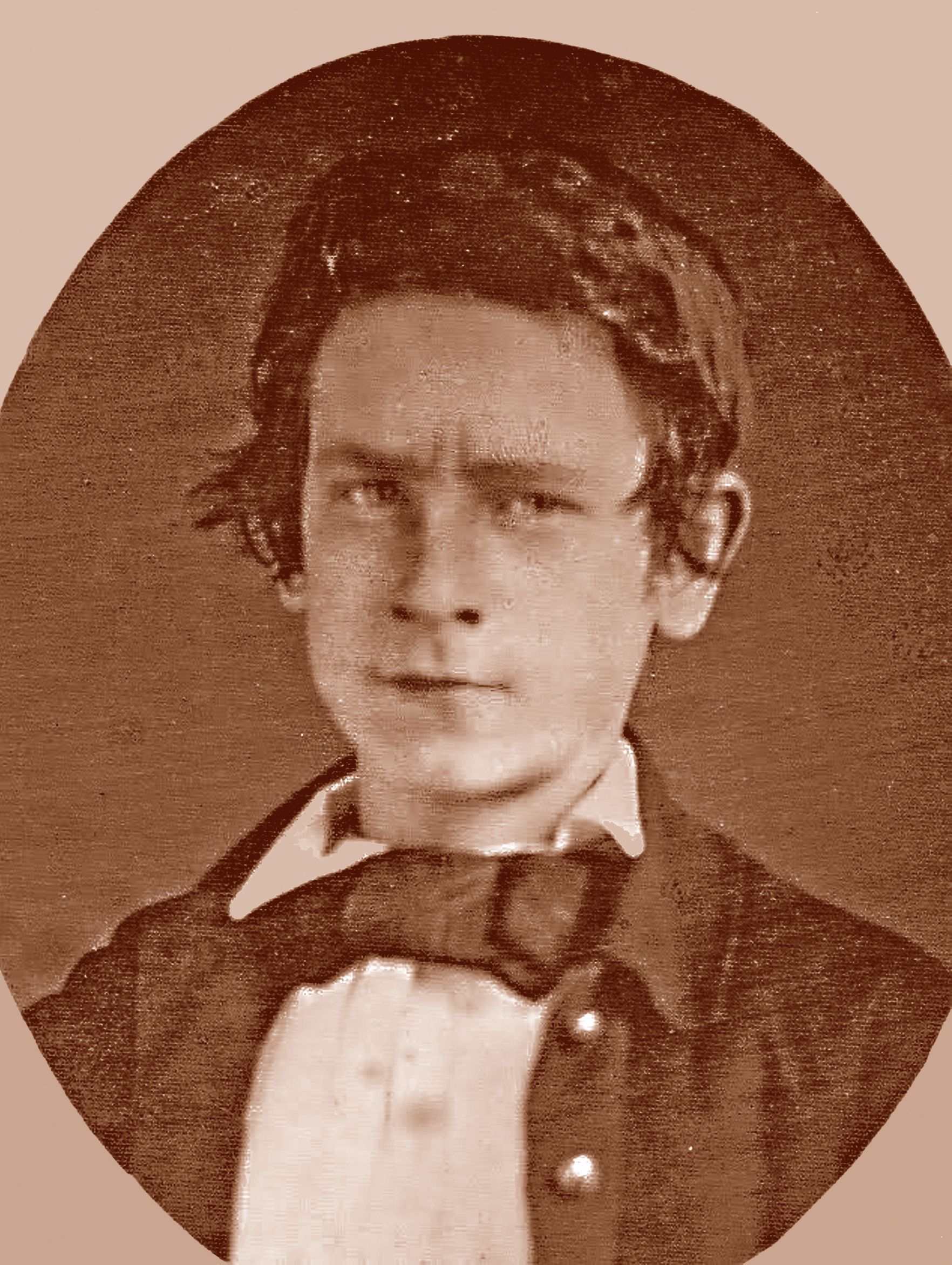
Georgism
Henry George was one of the early American socialists. Born into a poor protestant family in Pennsylvania in 1839, the second of ten children, Henry was a stubborn, lazy child. Constantly failing school, he joined the navy at age 15 against his father’s advice.
Henry hated navy life and left after a year. Over the next few years, he took up but failed to hold various jobs before ending up in San Francisco at 19. After briefly working with a cousin in Canada, the two had a falling out, and Henry returned to SF. In 1858, he landed a typesetting job which didn’t last long. Bouncing through other positions, he tried the gold fields with no luck and returned to San Francisco.
At 21, hungry and desperate, Henry turned to begging in city streets, which was illegal. Rummaging through trash for scraps, he noticed rich folk in fancy restaurants enjoying salmon, caviar, and sparkling wine imported from France. When he smiled and beckoned for food, they called the coppers, who promptly gave him a severe hiding and told him to get out of town. Jealous and mad, Henry limped to an alleyway and hid in the shadows. In that moment, he developed a deep hatred of the wealthy and vowed to have his revenge.
Only the Wealthy To Pay Tax!
A few days later, as he sat with his back against trash bins, chewing on discarded meals, Mr. George dreamt up a way to make the rich pay. He said out loud, “How about we scrap all taxes and replace them with just ONE tax? One tax, called ‘the single tax,’ and the best part is, only landowners pay it!”
Under a full moon, with a string bean hanging from his mouth, Henry George looked like a man possessed. “That’s it!” he shouted, tipping a trash can lid over and scaring a nearby cat. “A way to make rich mongrels pay!” With a maniacal gleam in his eye, he stood up and yelled, “A way to make them pay!”
People shouted back, “Fiddlesticks!” “Shut yer gob!” “Pipe down” and “Git a move on!”
But Henry George wasn’t deterred. As he curled up in an old sack to sleep, he whispered to his flea-bitten cat, “We’ll make ’em pay ALL the taxes. My single land tax will replace all the others.”
An Easily Dismantled Scheme
We can easily dismantle Henry George’s scheme with two questions:
1) Who would decide the value of land?
2) Who would decide the percentage of tax on that value?
In both cases, the answer is Government, who would decide what your land was worth and what percentage of that value you paid in tax. The leeches might start with 5% but would eventually increase it to 10%, 20%, 30%, and probably 60% under successive governments with their myriad excuses. They would also artificially inflate land values in a ruse to raise more revenue. Predictably they would add additional taxes on top of the single tax, as the parasites always do. And there are dozens of other problems with the scheme.
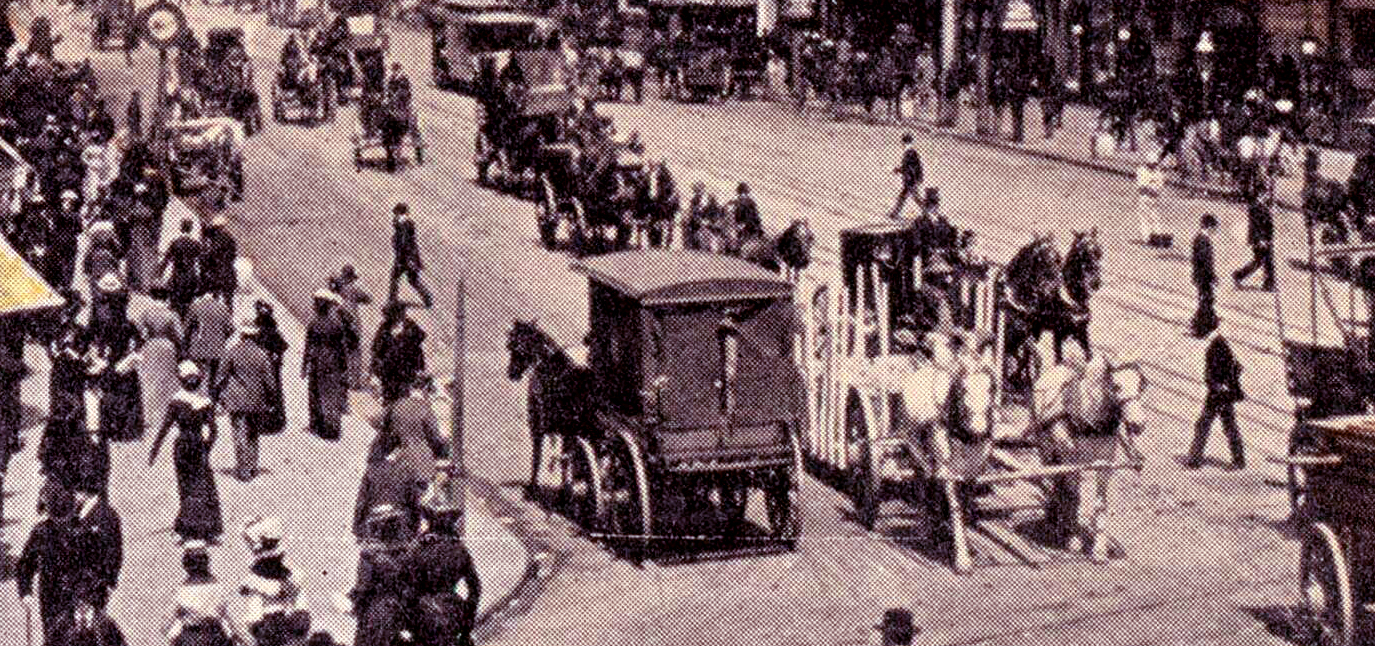
San Francisco Times
After weeks of living on the streets, Henry George found work as a typesetter at the struggling San Francisco Times. It was dirty, difficult work, but George stuck it out for fear of having to live on the street again. Over the years, the paper made less money and began to fail. Despite his hard work, Henry George found himself out on the street again, begging. In July 1861, one passerby, 16-year-old Annie Fox from Sydney, Australia, took pity on him. She was a Roman Catholic orphan living with her wealthy American uncle. Annie gave charitably to George, who made her laugh. Over a week or so, they became friends and then lovers.
When Annie turned 17 and told her uncle about George, he was enraged. “Aside from being a heretic,” he shouted, “that beggar has no education or money!”
George saw this as one more reason to hate the wealthy and began working on Annie to run away with him. A week later, she gathered her valuables and packed suitcases, and the pair eloped. They married the next day, December 3, 1861. There were no guests or honeymoon, and soon Annie was pregnant. George, at 22, drifted from one job to another until, penniless, he resorted, once again, to begging.
By the time their second child was born, impoverished George became mean and sullen. One night in the city, he saw a wealthy man approaching and headed over to ask him for money. If he refused, George decided, he would murder him and steal his wallet. Whether the man sensed this or not, he gave George a generous amount and hurried away. George later confessed this in his journal, seeming almost proud of his actions, revealing the true nature of a socialist.
Despite hitting rock bottom, Mr. George finally landed a steady job as a typesetter in another San Francisco rag. For weeks he pestered his boss to let him write for the paper, and eventually, the editor published his political rants. In time, his anti-rich spiels attracted various cranks who also hated wealthy people. They encouraged him to continue flogging his ideas about a single tax, a tax for landowners, his tax, a way to force the wealthy to pay ALL the tax, while renters and working-class folk paid none.
An Early Soros
Joseph Fels, a millionaire soap maker and far-left extremist reminiscent of George Soros, was a fan of Henry George’s socialist writings. Fels donated generously to unions, socialists, and communists. He is best known for donating $50,000 to the Soviet Union Communist Party (CPSU) in 1923, which helped them establish what would become one of the most oppressive and lethal regimes in history: The USSR. Under Stalin’s rule, an estimated 100 million Russians were murdered, with tens of millions sent to gulags and suffering under tyrannical policies that destroyed society. These atrocities could not have been carried out without support from individuals like Fels, whose decision was incredibly misguided and reprehensible.
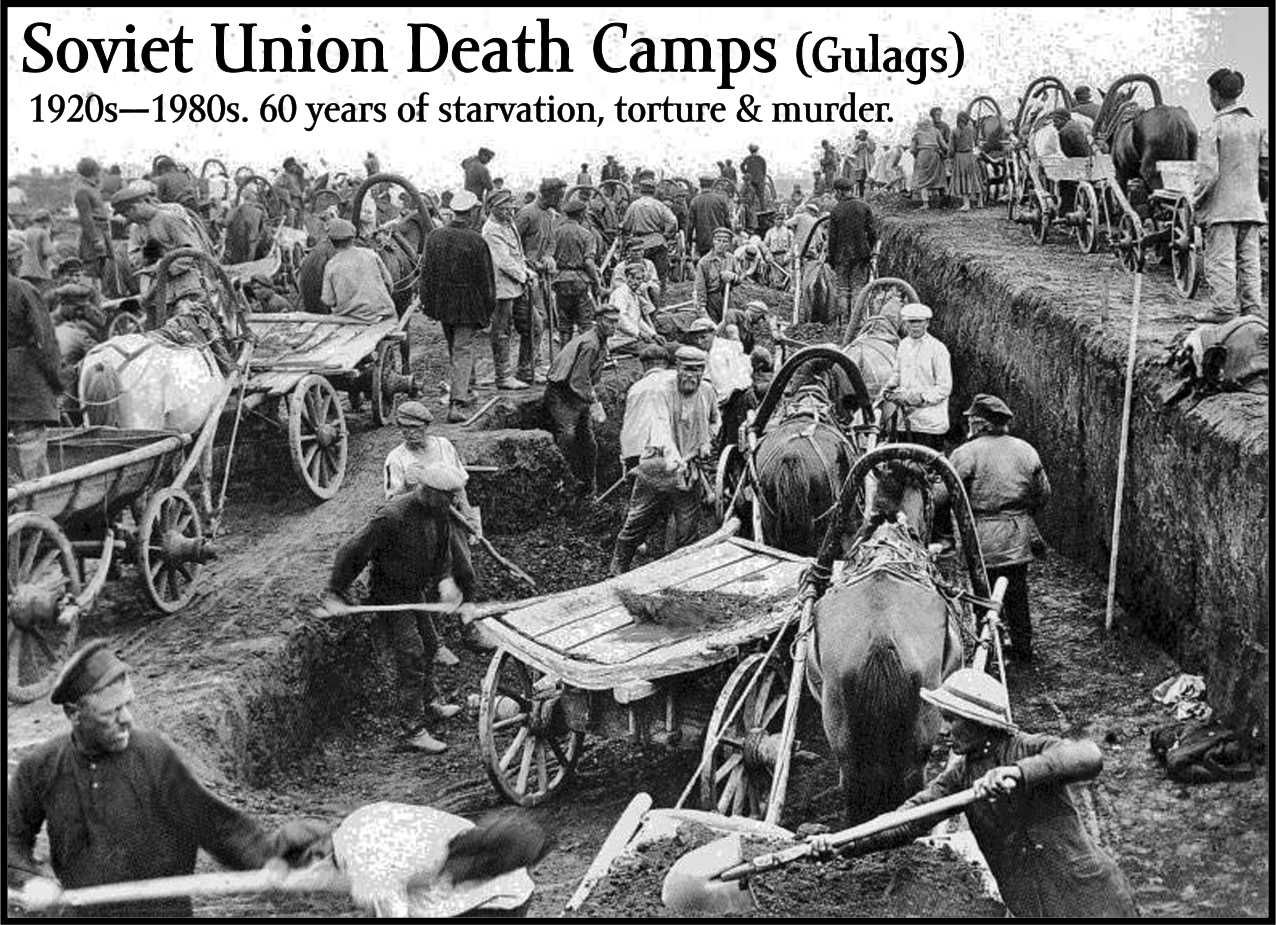
George Falls for Fels
Fels bought George lunch and advised him to write a book, offering to help publish it. Fels would introduce him to people who could help. Henry George had found his benefactor and began work immediately. About a year later, with Fels’s help, the manuscript was edited and shown to a publisher. In 1879 George’s first book, ‘Progress and Poverty: An Inquiry into the Cause of Industrial Depressions and of Increase of Want with Increase of Wealth: The Remedy,’ was published. Despite the long title, it sold more than 3 million copies.
George the denier?
Henry George denied being a socialist even though he clearly was. Karl Marx stated, “His fundamental dogma is that everything would be all right if ground rent were paid to the state. (You will find payment of this kind among the transitional measures included in The Communist Manifesto too).”
George Bernard Shaw, who founded socialist organizations such as the Fabian Society (devoted to world communism), claimed that Henry George “inspired five out of six socialist reformers in 1880s Britain.”
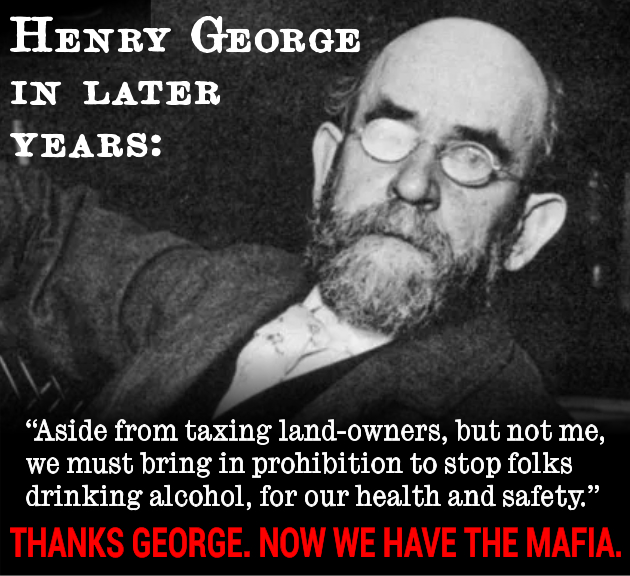
Georgie Porgism?
What Henry George needed for his brand of socialism was a name, and with Fels’ assistance, he settled on ‘Georgism.’ While not the most innovative moniker, it was better than ‘Georgie Porgie,’ which the school kids used to call him. For many years, George touted Georgism high and low across the United States, with Joseph Fels funding his efforts, hoping to turn him into a political figure. At every rally or convention, some businessmen would jeer at him, shouting, “Beggar! Ya wanna dime?” or “Hey George, why not call it ‘Beggarism’?”
And why wouldn’t they be angry? George’s proposal involved taxing landowners, while he would pay no tax despite potentially making millions from book sales. Meanwhile, his elderly neighbor who owned her own home would be required to pay taxes under Georgism. The absurdity of this arrangement was clear to many.
On April Fool’s Day in 1885, Henry George, 46, gave a speech to union workers with the ludicrous name “The Noble and Holy Order of the Knights of Labor” at the Opera House in Burlington, Iowa.
Not one of those clowns came close to being knights. They copied the Masons, with invitation-only membership, secret societies, hierarchical structure, rituals only known to members, codes, and symbols to communicate with each other and identify themselves to other members. Even their seal looked Masonic.
Some estimate that half to three-quarters of these so-called “knights” were Masons, and you have to wonder how many were members of the Ku Klux Klan since they also had “knights,” rituals, secret handshakes, codes, invitation-only rules, and were exclusively made up of Democrats.
Joseph Fels promoted the occasion, handing out 50,000 pamphlets of the speech after the event (see above). He packed the opera house with unionists, socialists, communists, and every bleeding-heart liberal on this side of the Appalachian Mountains. Opera singers packed up and went camping when they saw the Leftist crowds coming. The so-called “knights” were just union thugs, forcing employers to pay them more without having to work for it. They only attended to escape their wives and have a few drinks, though, if they’d known how long George’s speech would last, it’s doubtful any would have turned up.
Wallace Shawn
The actor Wallace Shawn read excerpts from Henry George’s speech ‘The Crime of Poverty,’ which is now doing the rounds on the social media platform TikTok. Did Mr. Shawn miss out on 137 years of socialist catastrophes, including the mass murders committed in countries such as the Soviet Union, Germany, Eastern Europe, North Korea, China, Cuba, and Vietnam? Was he unaware that both World Wars were caused directly by socialism? What is it about these two men other than they both have first names for surnames?
Watch Shawn’s fawning reading on YouTube (backup here) or TikTok (backup here). Also, the full text of Henry George’s speech is in this PDF (backup here).
Wallace Shawn is an exceptional actor, but to be so impressive, Mr. Shawn had to spend much time on his craft, leaving less time for politics and economics. Albert Einstein was in a similar situation. He was a brilliant theoretical physicist whose mind brimmed over with physics and mathematics. He had little time for anything else, especially time-consuming politics, so Albert’s political understanding was comparable to that of a college student. Most college students are enamored by socialism, which promises to create a utopia where everyone shares everything equally, like a Sesame Street sketch.
However, Shawn should be aware that implementing socialist policies has often resulted in catastrophic consequences, including terror, misery, death, and poverty, rather than solving the problems it purports to address. It may be necessary for him to reconsider his political ideology and the potential consequences of supporting such a destructive system.
I will now go through the selected sentences Wallace Shawn read from Henry George’s pamphlet and respond to each. His words are in blue italic; my responses are in black.
Wallace begins:
I propose to talk to you to-night of the Crime of Poverty. I cannot, in a short time, hope to convince you of much; but the thing of things I should like to show you is that poverty is a crime. I do not mean that it is a crime to be poor. Murder is a crime; but it is not a crime to be murdered; and a man who is in poverty, I look upon, not as a criminal in himself, so much as the victim of a crime for which others, as well perhaps as himself, are responsible.
Henry George means that the wealthy who enjoyed caviar inside restaurants while he shivered outside made him angry, and he wants to flip the script, making millions from book sales while landowners pay his taxes. Then they will be left begging in the rain while he sips champagne inside. Will their poverty be a crime, Mr. George? No, because it is rules for thee but not for me.
If a man chooses to be poor, he commits no crime in being poor…it is certainly a crime to force poverty on others.
Police often bully beggars away from businesses; typically, they are reasonable men, not thugs. Unfortunately, there are a few thugs in police uniforms, and when they sunk the boots into Henry George, he blamed the wealthy diners who had summoned them, but corrupt cops were not the diners’ fault. As for beggars, most are not as innocent as the Lefties like George would have you believe. YouTubers expose thousands of fake beggars. Search that platform for “Fake beggars” (without quotes), or click here. Today’s technology allows us to expose lazy charlatans pocketing money from naive do-gooders.
And it seems to me clear that the great majority of those who suffer from poverty are poor not from their own particular faults, but because of conditions imposed by society at large.
Again, George says we are forcing poverty on the poor, which is absurd. We do not force anyone into anything. We follow the law, work hard to earn money, and care for our families, which has nothing to do with George the beggar or his army of vagrants. Many of them could escape poverty if they stopped drinking and found employment. If they choose to languish in tents on the sidewalk, using drugs, that is their decision, but it is not fair of hoboes to blame innocent citizens and respectable businesspeople for their own bad choices.
Therefore I hold that poverty is a crime—not an individual crime, but a social crime, a crime for which we all, poor as well as rich, are responsible.
Yet, he wants only one group, landowners, to pay for this “crime.” Nobody else. The old lady next door should pay for this “crime” because she owns her home. The farmer down the road should pay for this “crime” because he owns the farm on which he slaves. But the socialist millionaire soap maker, Mr. Fels, who rents a factory, doesn’t have to pay any tax under George’s Georgism. Nor does George, the socialist writer, who makes millions from his books, and rents a mansion. No tax for him! Not a red cent. My, how convenient it is for rich socialists!
…there is no natural reason why we should not all be rich, in the sense, not of having more than each other, but in the sense of all having enough to completely satisfy all physical wants; of all having enough to get such an easy living that we could develop the better part of humanity.
An easy living, eh George, at the expense of your elderly neighbor, who pays your taxes, while you enjoy the profits from your book sales. An easy living indeed, as you count your money and let the farmer down the road pay your taxes. What an easy living that would be when everyone else pays your taxes for you, hey George? You have it all figured out!
There is enough and to spare.
There sure is enough, and to spare, when you don’t have to pay taxes, hey George? More than enough to spare! Throw another shrimp on the barbie, put another log on the fire, cozy up, and enjoy that champagne while all the landowners up and down your street pay your taxes.
The trouble is that, in this mad struggle, we trample in the mire what has been provided in sufficiency for us all; trample it in the mire while we tear and rend each other.
What George calls “tearing and rending” is actually the work of businesses to provide goods and services to us all in exchange for payment. It’s called capitalism; without such companies, there would be no planes, trains, automobiles, computers, phones, electricity, TV, air conditioning, hospitals, surgical instruments, or any of the billions of tools, gadgets, machines, products, and services we enjoy today. That’s “tearing and rending,” according to George.
Think for a moment how it would strike a rational being who had never been on the earth before, if such an intelligence could come down, and you were to explain to him how we live on earth, how houses and food and clothing, and all the many things we need were all produced by work, would he not think that the working people would be the people who lived in the finest houses and had most of everything that work produces? Yet, whether you took him to London or Paris or New York, or even to Burlington, he would find that those called the working people were the people who live in the poorest houses.
George believes that businessmen who slaved to build up their businesses did not work hard. He thinks they just sat around, and all their millions fell in their laps. If that were true, then any lazy person will be wealthy. According to George, sit around and do nothing, and soon you’ll be rich. Oh, wait, no. All the lazy people I know who avoid hard work are poor. So much for that theory, George.
Also, not all laborers live poorly. Those who work hard, avoid booze and drugs, manage their money, save, and invest, live well. They consistently move to more expensive areas. On the other hand, those who drink, smoke, party, and blow their money on fast cars, gambling, and women stay in poorer regions. They miss opportunities and work as little as possible.
Did you ever think of the utter absurdity and strangeness of the fact that, all over the civilised world, the working classes are the poor classes?
Did you ever think of the utter absurdity and strangeness of someone who fails to recognize the constant migration of hardworking individuals from impoverished to wealthier areas? It occurs with millions of people each year. Some well-known examples, in no particular order, include The Beatles, Elvis Presley, Henry Ford, Oprah Winfrey, Ralph Lauren, Ken Langone, J.K. Rowling, David Murdock, John Paul DeJoria, Do Won Chang, Mohed Altrad, Rocco Commisso, Shahid Khan, George Soros, Jan Koum, Roman Abramovich, Li Ka-Shing, Francois Pinault, Amancio Ortega, Larry Ellison, Harrison Ford, Samuel L. Jackson, Melissa McCarthy, Robert Noyce, Dave Duffield, Martha Stewart, Reid Hoffman, Colonel Sanders, Kenny Troutt, Howard Schultz, Lakshmi Mittal, Leonardo Del Vecchio, and Sheldon Adelson.
Go into any city in the world, and get into a cab and ask the man to drive you where the working people live. He won’t take you to where the fine houses are. He will take you, on the contrary, into the squalid quarters, the poorer quarters. Did you ever think how curious that is?
No, Henry George and Wallace Shawn, because I understand that cab drivers are not professors of demographic sociology. Even students of this subject would know that hardworking people can be found in all kinds of suburbs, especially the richer ones. You don’t get to be wealthy without hard work unless you are the minority who inherit their wealth, and even they have to work hard to maintain it. A cab driver may have little education and assume you mean a working-class suburb because he mistakenly believes they are where you find the only hard workers. However, someone with a Ph.D. in demographic sociology will tell him that this stereotype is wildly inaccurate.
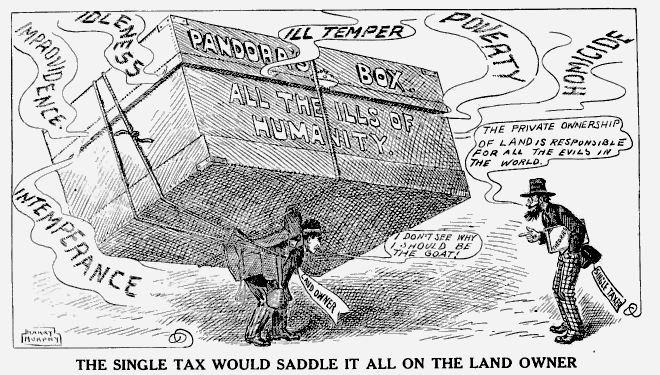
Georgism is BS-ism
Henry George convinced many people, including Wallace Shawn, that Santa Claus does exist and that we can all enjoy life with other people’s money in a sublime socialist state. One of those convinced by him was Emma Lazarus, the kooky left-winged poet responsible for the invitation placed on a plaque at the base of the Statue of Liberty, the one that invites the world’s poor huddled masses. Who wants wretched, tempest-tost, homeless refuse? I wrote about that here. Quote:
“Henry George believed that all the rent earned from property should be confiscated and shared by everyone… that water, electricity, sewage, and telecommunications should be free for all, which is just another version of socialism…”
Confiscating rent is stealing. It means the landowner no longer owns his land. It reduces us to tribes who would steal land whenever they liked.
Hollywood is full of socialist actors like Wallace Shawn. Hopefully, they will think twice before promoting the likes of Henry George, who has already generated enough wretchedness in the world and should be remembered only as the beggar and rabble-rouser he was 137 years ago.
In closing, we present an 1886 cartoon by Joseph Kepler, who also drew the Red Riding-Hood cartoon shown above, and the cartoon of George blowing the trombone in the opening graphic. Kepler exposed Henry George’s evil socialistic intent. In this case, a demon named Mephistopheles tempts a worker, pointing out the figure of Henry George, who holds a horn overflowing with promises of free land, no taxes, free beer, no work, and free everything except anarchist assessments. The demon uses a quill of journalistic agitation to goad the worker to sign a pledge to anarchy with his blood in exchange for his soul and body. The cartoon depicts George standing triumphantly on Jay Gould, a wealthy railroad tycoon, and is captioned ‘The Mephistopheles of Today: Honest Labor’s Temptation.’ Click the cartoon for the full-sized version.


